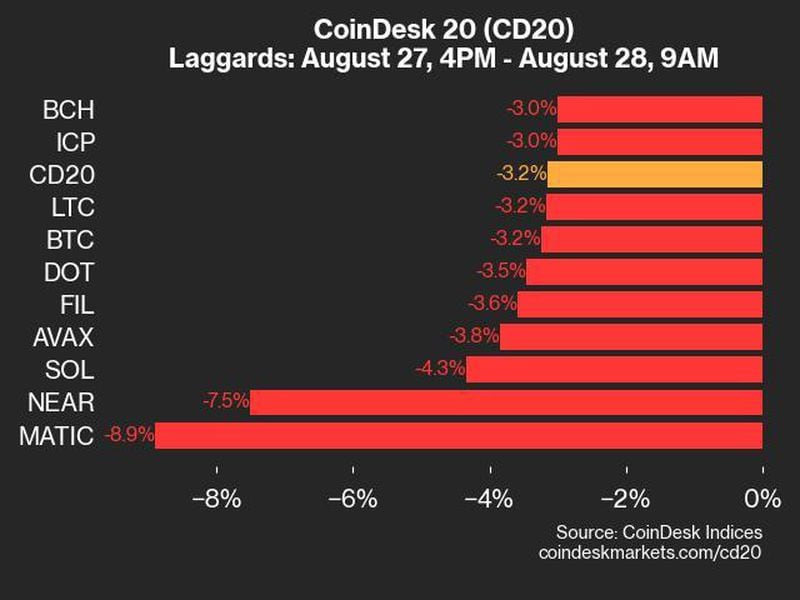Ether spot ETFs have seen net outflows overall since their launch, said the team at JPMorgan.
The outflows from the Grayscale Ethereum Trust were much larger than the bank had originally anticipated.
The bank noted growing interest from asset managers for a combined ETF that gives exposure to both bitcoin and ether.
Ether spot exchange-traded funds have seen net outflows overall since their launch last month in contrast to the more successful launch of spot bitcoin ETFs earlier in the year, JPMorgan said in a research report on Wednesday.
The ether (ETH) ETFs commenced trading in the U.S. on July 23, roughly six months after the bitcoin (BTC) funds. In the five weeks following each launch, the ether funds suffered about $500M of net outflows while the bitcoin ETFs saw net inflows of more than $5 billion, according to the bank’s team.
The weak numbers for the ether ETFs were somewhat expected, said the bank, noting bitcoin’s “first mover advantage,” the lack of staking, and lower liquidity meaning less appeal to institutional investors.
Unexpected though were $2.5 billion in outflows from Grayscale’s Ethereum Trust (ETHE), which the bank had anticipated would be more like $1 billion as it converted from a closed-end fund to a spot ETF. JPMorgan noted that Grayscale has also launched a mini ether exchange-traded fund to counter the outflows from ETHE, but this ETF has only seen $200 million of inflows.
“Due to weaker demand for spot ether ETFs compared to bitcoin, there appears to be a growing interest among asset managers to file for a combined ETF that offers exposure to bitcoin and ether,” the team, led by Nikolaos Panigirtzoglou, wrote.
Institutional and retail ownership of spot bitcoin ETFs was little changed from the first quarter, with retail holding about 80%, the bank said, adding that “most of the new spot bitcoin ETFs were likely bought by retail investors since their launch, either directly or indirectly via investment advisors.


























